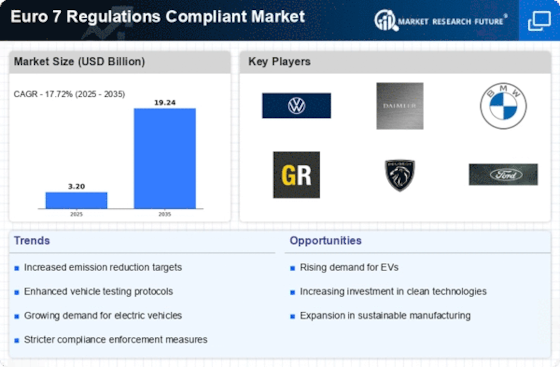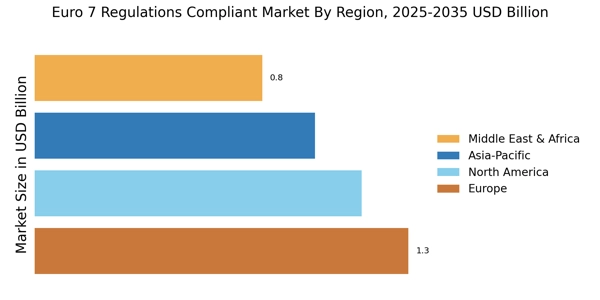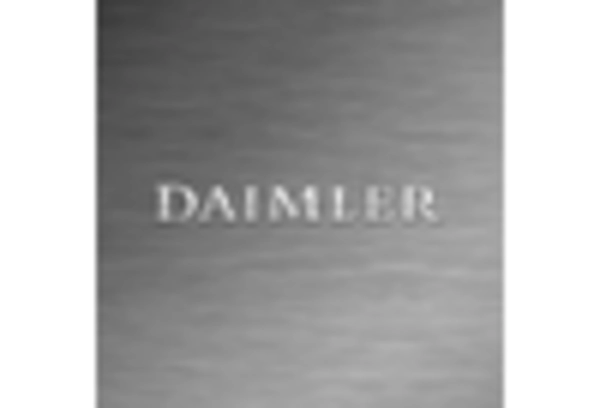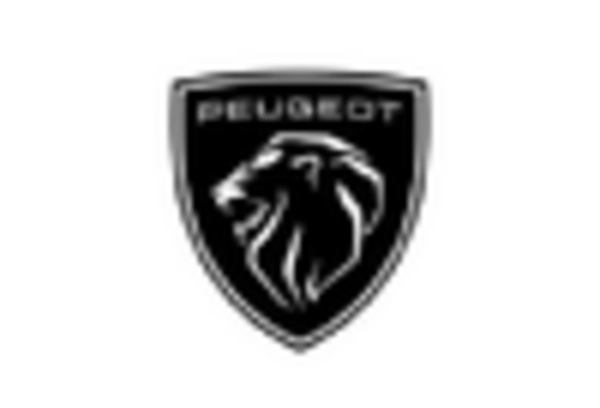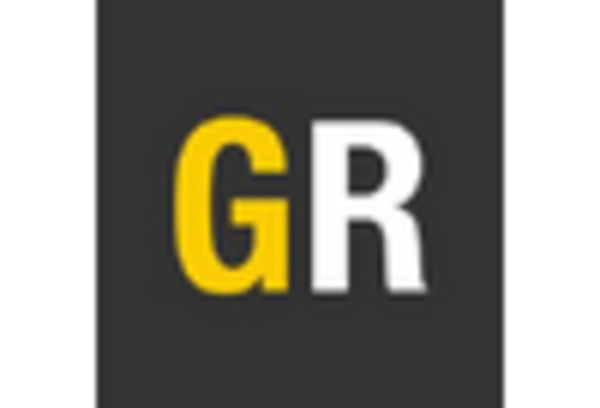Stringent Emission Standards
The Euro 7 Regulations Compliant Market is primarily driven by the implementation of stringent emission standards. These regulations aim to reduce harmful pollutants from vehicles, thereby enhancing air quality. As countries adopt these standards, manufacturers are compelled to innovate and invest in cleaner technologies. For instance, the European Commission has proposed that by 2025, new vehicles must emit significantly lower levels of nitrogen oxides and particulate matter. This regulatory pressure is likely to accelerate the development of advanced emission control systems, which could lead to a market growth rate of approximately 5% annually in the coming years. Consequently, companies that adapt swiftly to these regulations may gain a competitive edge in the Euro 7 Regulations Compliant Market.
Consumer Demand for Sustainability
There is a growing consumer demand for sustainable transportation solutions, which is significantly influencing the Euro 7 Regulations Compliant Market. As awareness of environmental issues increases, consumers are increasingly favoring vehicles that meet or exceed Euro 7 standards. This shift in consumer preferences is prompting manufacturers to prioritize sustainability in their product offerings. Market data indicates that nearly 70% of consumers are willing to pay a premium for vehicles with lower emissions. This trend not only drives innovation in cleaner technologies but also encourages manufacturers to align their strategies with sustainability goals. As a result, the Euro 7 Regulations Compliant Market is likely to witness a surge in demand for eco-friendly vehicles, further propelling market growth.
Government Incentives and Subsidies
Government incentives and subsidies play a pivotal role in shaping the Euro 7 Regulations Compliant Market. Many governments are introducing financial incentives to encourage consumers to purchase vehicles that comply with Euro 7 standards. These incentives may include tax breaks, rebates, and grants for electric and low-emission vehicles. For example, several European countries have implemented schemes that provide substantial financial support for consumers transitioning to greener vehicles. This not only stimulates demand but also aids manufacturers in offsetting the costs associated with developing compliant technologies. As a result, the Euro 7 Regulations Compliant Market is likely to experience increased sales and market penetration due to these supportive government measures.
Investment in Research and Development
Investment in research and development (R&D) is a crucial driver for the Euro 7 Regulations Compliant Market. As manufacturers strive to meet the new emission standards, they are allocating substantial resources to R&D initiatives aimed at developing innovative technologies. This includes advancements in catalytic converters, particulate filters, and hybrid systems. According to recent reports, R&D spending in the automotive sector is projected to reach over 20 billion euros by 2026, reflecting the industry's commitment to compliance with Euro 7 regulations. Such investments not only enhance product offerings but also foster collaboration with technology firms and research institutions, thereby accelerating the pace of innovation within the Euro 7 Regulations Compliant Market.
Technological Integration and Innovation
Technological integration and innovation are essential drivers of the Euro 7 Regulations Compliant Market. The rapid advancement of technologies such as artificial intelligence, machine learning, and data analytics is enabling manufacturers to develop more efficient emission control systems. These technologies facilitate real-time monitoring and optimization of vehicle emissions, ensuring compliance with Euro 7 standards. Furthermore, the integration of smart technologies in vehicles is enhancing overall performance and user experience. Market analysts suggest that the adoption of such technologies could lead to a reduction in emissions by up to 30% in the next few years. Consequently, the Euro 7 Regulations Compliant Market is poised for significant transformation as manufacturers leverage these innovations to meet regulatory requirements.


